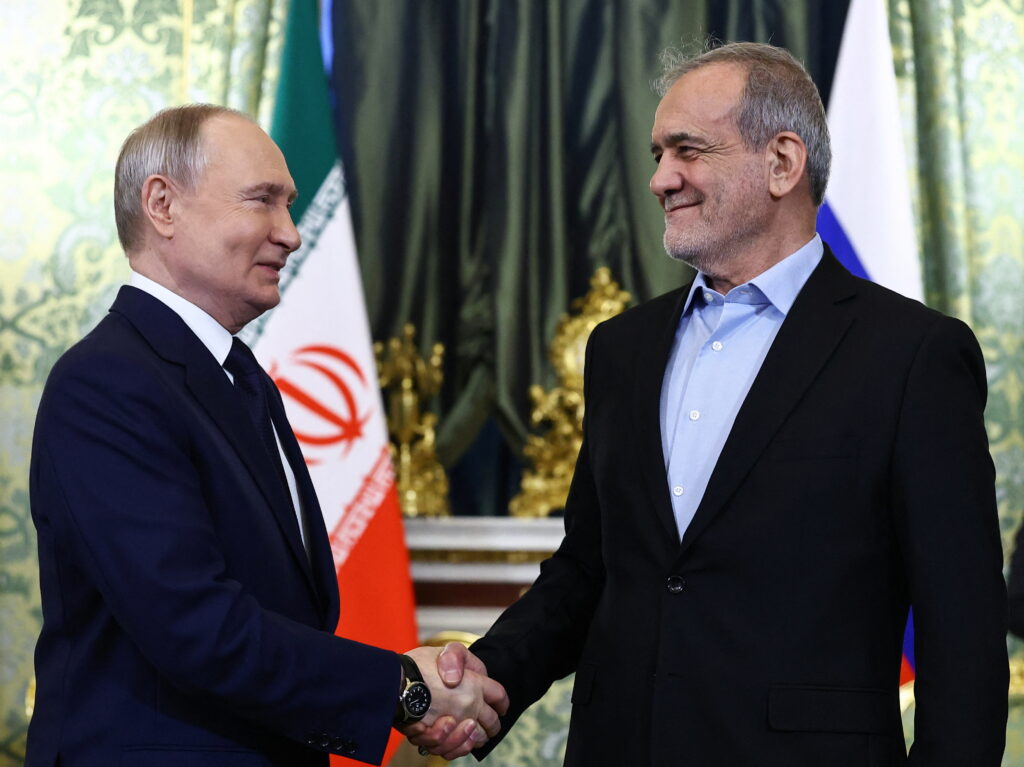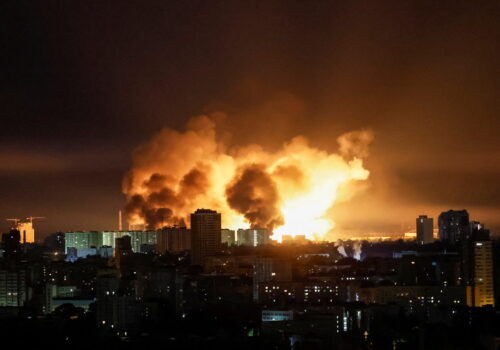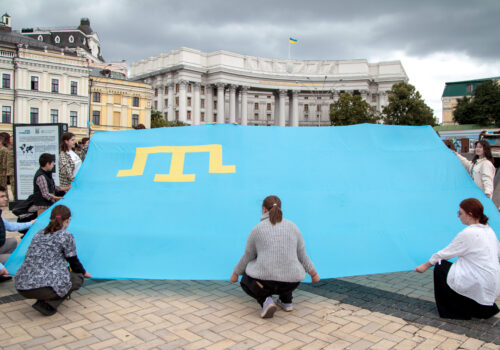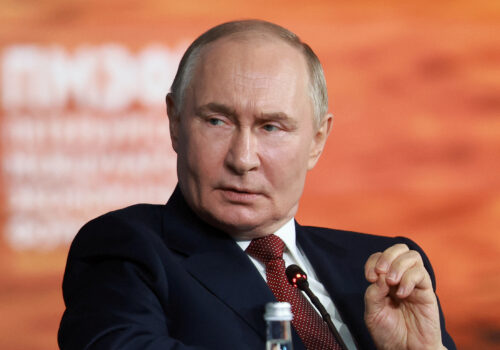For the past three years, Iran has been a major backer of Russia’s war against Ukraine. But when Israel and later the United States recently began a campaign of airstrikes against Iranian targets, this support was not reciprocated. Instead, Tehran has found that Moscow appears unwilling or unable to offer anything more substantial than diplomatic gestures.
When Russian President Vladimir Putin met with Iranian Foreign Minister Abbas Araghchi on June 23 in the aftermath of US airstrikes on Iran’s nuclear facilities, he denounced the bombings as an act of “unprovoked aggression” with “no basis or justification.” However, Putin did not announce any plans to provide military aid. Instead, he spoke in far broader terms of Russia’s continued commitment to helping the Iranian people.
This apparent reluctance to intervene more forcefully was not an isolated case of Russian restraint. On the contrary, it is fast becoming a defining feature of Moscow’s foreign policy. Just ask Armenia, which was left without Kremlin support in recent years amid escalating hostilities with Azerbaijan. As a founding member of the Russian-led Collective Security Treaty Organization (CSTO) and a longstanding ally of Moscow, Armenia was counting on Russian backing but received none.
A similar situation unfolded in Syria late last year, when the Kremlin-backed Assad regime collapsed in a matter of days. Once again, Russia refused to become directly involved and chose not to provide its ally with desperately needed military support. Instead, Moscow’s main contribution was to offer the ousted Syrian leader asylum. Iran is therefore not the first country to discover the limits of Russian friendship.
Stay updated
As the world watches the Russian invasion of Ukraine unfold, UkraineAlert delivers the best Atlantic Council expert insight and analysis on Ukraine twice a week directly to your inbox.
The Iranians can be forgiven for feeling particularly let down by Moscow’s underwhelming reaction to the recent airstrike campaign against their country. After all, Russia and Iran signed a Comprehensive Strategic Partnership Treaty in January 2025 amid much fanfare in Moscow. At the time, Putin praised the partnership deal as a “real breakthrough” in bilateral relations. In contrast, Kremlin officials have recently sidestepped questions over the possibility of military aid, while underlining that Russia’s recently signed treaty with Iran does not oblige Moscow to defend the Iranians from attack.
Many in Tehran may also feel undervalued given the importance of the support they have provided to Moscow since the onset of Russia’s full-scale invasion of Ukraine. Crucially, Iran has delivered thousands of Shahed attack drones to Russia along with the relevant technological blueprints, making it possible for the Kremlin to establish domestic production lines of its own. These drones are now being made at Russian facilities in rapidly increasing quantities and are playing a key role in the Kremlin’s bombing campaign against Ukrainian cities.
Eurasia Center events

Moscow’s recent record of non-intervention on behalf of its allies is a strong indication that the full-scale invasion of Ukraine has left the Russian military dangerously overstretched. Putin appears to have launched the invasion in February 2022 expecting to achieve a quick and comprehensive victory. Instead, his forces have become bogged down in the largest European war since World War II.
More than three years since the start of the invasion, much of Russia’s military strength is now thought to be deployed in Ukraine, with very little spare capacity available for other tasks. Meanwhile, the kinds of air defense systems that Tehran urgently requires are needed in Russia itself to defend against Ukraine’s expanding fleet of domestically produced drones and missiles. In other words, Putin has his hands full dealing with Ukraine and is currently in no position to provide Russia’s partners with protection.
The West should take note of Russia’s apparent military limitations. Throughout the invasion of Ukraine, Western policymakers have consistently urged restraint while warning about the dangers of possible Russian escalation. But as Iran, Syria, and Armenia can all testify, Russia currently appears to have little appetite or capacity for new military engagements. This has no doubt come as an unpleasant surprise in Tehran, but it should be welcome news in Western capitals.
Elena Davlikanova is a fellow at CEPA.
Further reading
The views expressed in UkraineAlert are solely those of the authors and do not necessarily reflect the views of the Atlantic Council, its staff, or its supporters.

The Eurasia Center’s mission is to enhance transatlantic cooperation in promoting stability, democratic values, and prosperity in Eurasia, from Eastern Europe and Turkey in the West to the Caucasus, Russia, and Central Asia in the East.
Follow us on social media
and support our work
Image: Russian President Vladimir Putin and Iranian President Masoud Pezeshkian shake hands as they meet in Moscow, Russia. January 17, 2025. (REUTERS/Evgenia Novozhenina/Pool)




